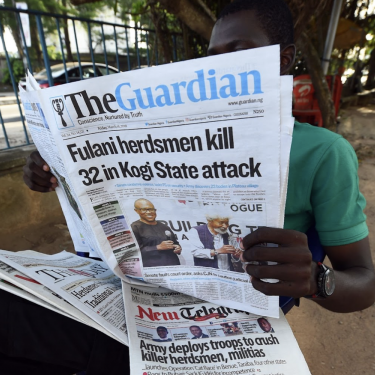Nigeria’s journalists must be able to cover elections without fear

Reporters Without Borders (RSF) calls on the Nigerian authorities to ensure that the country’s media are able to cover the ongoing electoral process without restrictions and without fear of reprisals.
The Nigerian media have not been spared the violence that in recent months has marked the campaigns for the elections for president, vice-president and national assembly due to be held tomorrow (25 February) and the elections for governor in 28 of Nigeria’s 36 states on 11 March.
Like the many Nigerian citizens who have been injured or suffered property damage in election-related violence, media outlets have also been targeted. The latest victims include Atlantic TV and Wish FM 99.5 in the southern city of Port Harcourt, in Rivers State, which sustained significant damage when attacked with explosives and gunfire on 21 February.
The Nigerian authorities must protect media personnel and ensure that they are able to provide unrestricted coverage of the elections, because their reporting is crucial for the success of this exercise in democracy. It is also essential that there are no Internet cuts before, during or after the elections, so that the public’s access to news and information is not restricted. Finally, after these elections, those who are elected must make press freedom a real priority and must end the violence against the media that has grown steadily in the past ten years.
Outgoing President Muhammadu Buhari’s two terms, which began in 2015, have been marked by many abuses against journalists, including physical attacks during a big wave of protests against police violence in 2020, as well as arbitrary arrest and imprisonment. Some reporters, such as RegentAfrica Times website reporter Alex Ogbu in January 2020, were also fatally injured during protests.
All of the crimes of violence against journalists are still unpunished. The outgoing government also suspended Twitter, suspended several TV channels, including Independent Television (AIT), Arise and Channels TV, and announced the controversial closure of 53 radio stations for failing to pay their licence fees.
